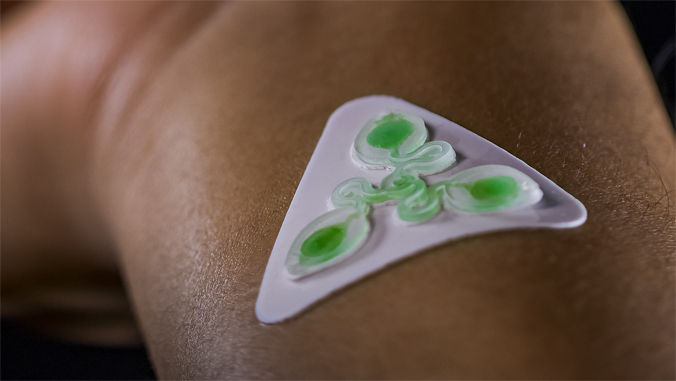
A 3D-printed wearable sweat sensor that can detect a variety of health conditions in real time, developed at the University of Hawaiʻi at Mānoa, has been recognized as one of the world’s most promising healthcare innovations of 2023 according to IN-PART, a platform that connects the industry with innovative impact-driven technologies in academia.

After analyzing data on more than 8,500 innovations, UH Mānoa’s sweat sensor ranked No. 5 based on introduction requests, positive feedback and article reads.
Created by Assistant Professor Tyler Ray in the UH Mānoa College of Engineering, the sensor collects and analyzes sweat to provide vital health insights or diagnose serious conditions like cystic fibrosis. The device utilizes 3D-printing technology to pave the way for accessible, convenient and insightful personal health monitoring.
“As our group seeks to advance health equity through improved access to preventative technologies, it’s gratifying to see our sweat sensor research recognized as a promising innovation,” said Ray. “However, much work remains to fully realize the promise of our platform as our ultimate goal is to pioneer digital health tools that detect conditions early and holistically preserve human health.”
Related: Breakthrough for sweat: health monitoring device from UH researchers, May 2023
This innovative sweat sensor technology developed at UH Mānoa highlights the university’s commitment to supporting entrepreneurship. Recently launched programs, such as Patents2Products and Faculty Fellows from the UH Office of the Vice President for Research and Innovation, seek to foster an innovation ecosystem at UH Mānoa. Such programs provide training to translate cutting-edge research into commercial technologies so that students and faculty can take their ideas from lab to market. Recognition of inventions like the sweat sensor promotes the university as a hub for world-changing innovation and technology transfer.

